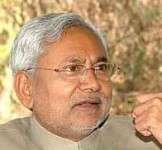Beware a friendly media

Reprinted from Bihartimes.com
Do you want to know why Lalu Yadav––along with spouse Rabri Devi––managed to survive in
The media hype in the first half of Rajiv Gandhi¿s five-year rule in the mid-1980s led to his downfall. The Bofors issue cancelled out whatever good image the media created in the first three years of his rule, in which he certainly took some good steps. It is the propaganda machinery of 2004, which ensured the defeat of the NDA in the last elections. The whole Shining India campaign backfired. Yet a set of politicians have not learnt the lesson that the media is a double-edged weapon. Friendship with it is really dangerous.
The media has projected such an image of
The bureaucracy is not going to give any feedback on the feeling of the common mass. Nor does the intelligence machinery objectively inform the government about its shortcomings. It is the media, which is supposed to play the role of mirror, and show whatever is happening, good or bad. And if it is not doing so it is doing the greatest disservice to the government in power.
What is happening today? Some months back a premier national daily, quoting a survey, gave an eight-column first page coverage to the news-item that the state has registered 16 per cent growth rate in the last financial year. However, when several senior economists and articles on two websites questioned this fantastic figure of so much growth when the state witnessed 24 per cent fall in the farm production that same year, the newspaper did not have even the courage to publish the clarification.
A senior journalist of another premier national daily never gets tired of writing adjectives like beaming, smiling, jovial, confident etc. before writing the name of the chief minister. He, like many scribes accompanying the chief minister, not only conveniently ignored the news of the lathi-charge during the Janata Darbar in West Champaran on January 20, he went on to write that so many people had turned out in support of Nitish Kumar. The truth is that there was nothing like support or oppose; the people were there with their problems. These are the people who are going to harm Nitish and not allowing the reality to appear.
Even during the 2007 and 2008 floods the Press first tried to underplay the news. It was more than a week later that the last year¿s flood could get national coverage. This delay cost the state dearly and the initial days help from national and international agencies could not come. The highest casualty took place in those early few days.
Everyone knows that corruption in
In such a situation when the chief minister hits the road he is bound to be taken aback by the fury of the people against his own bureaucrats. At one place even the carcade of the state mining minister, Ram Chandra Sahni, who was following the chief minister, was attacked in
Thus notwithstanding the noble intention of the chief minister, who often takes criticism in a good spirit the whole exercise got diluted by few media persons.
However, through his Vikas Yatra the chief minister is at least learning how much Vikas (development) the pockets of his bureaucrats and the mukhiyas have made. When on the New Year¿s eve Nitish announced that he would be embarking on the Vikas Yatra he might have never realized that this exercise would go a long way to provide the opposition an opportunity to make corruption an election issue and that too so close to the parliamentary election.
(The author is a Patna-based freelance journalist.)






